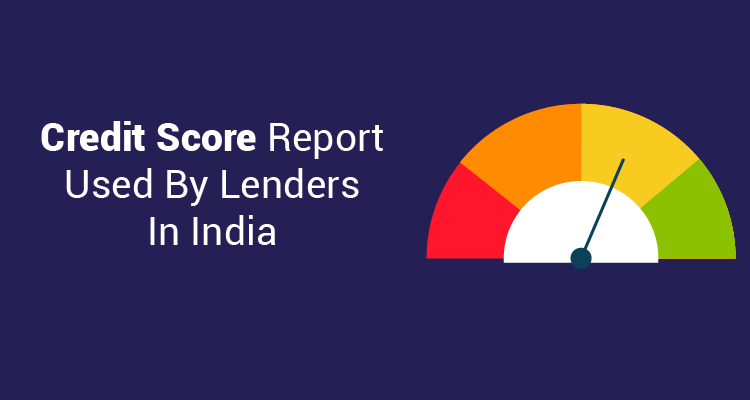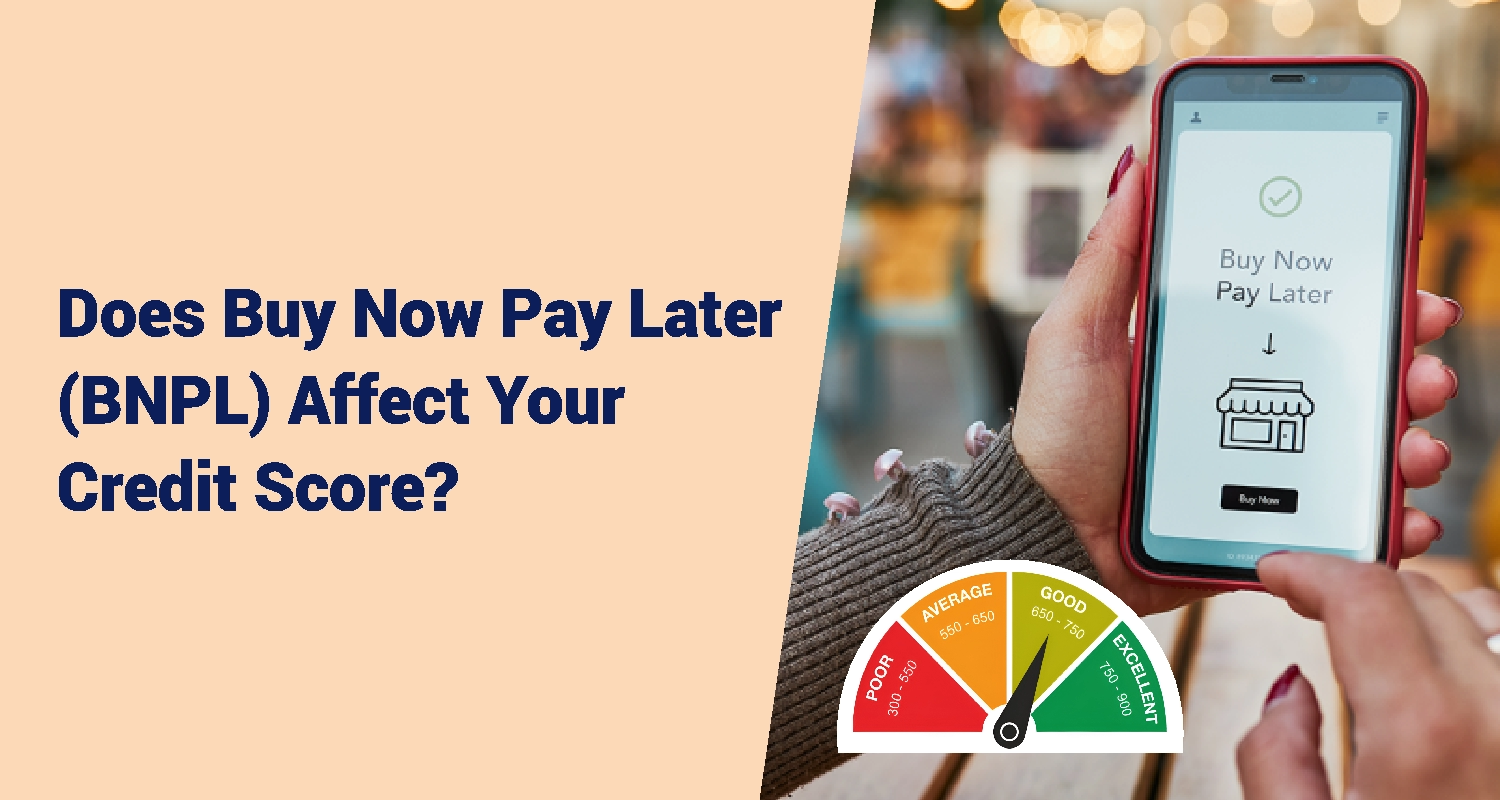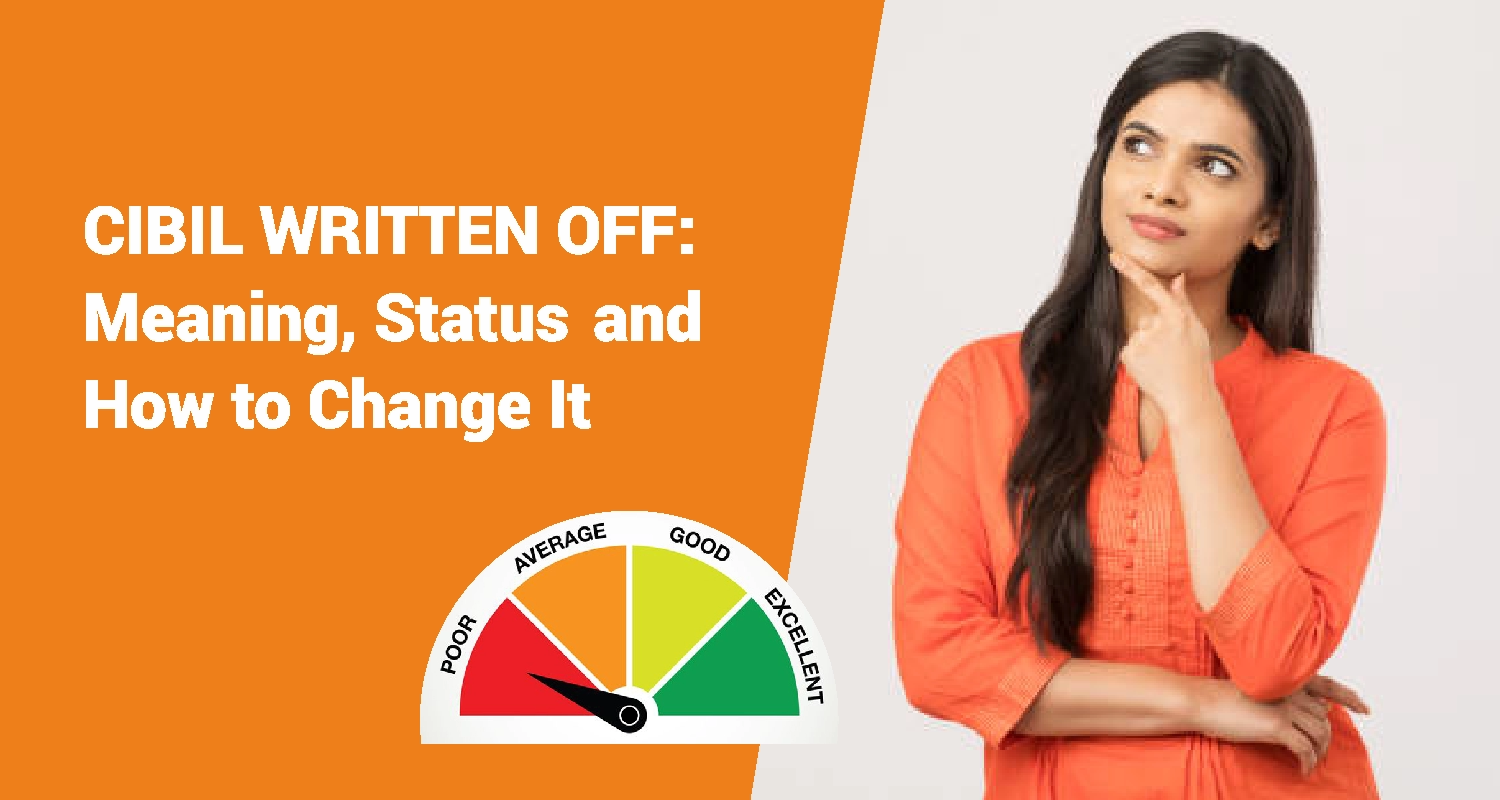Credit Score Report Used By Lenders In India

Taking a loan today is a common practice for most Indians. Home loans, car loans, educational loans - the list is seemingly endless. If you notice, the interest rate advertised by lenders on each of these loan products, is not fixed. It is advertised as a range starting from a certain percentage. Thus, if you apply for a loan, you may be offered an interest rate anywhere between the lower and higher end of the interest range.
There are several factors affecting the interest rate offered to a borrower by a lender. These include your income level and your credit score report. In this blog we explain what the credit score report used by lenders is all about.
A Credit Score Report, is a report generated by licensed Credit Information Bureaus. These bureaus gather information from banks and lenders regarding your level of institutional debt and your repayment history. Each of these factors is assigned a weightage on the basis of which a credit score is generated. The higher the score, the better is your credit worthiness in the eyes of the lenders, and the lesser is the interest rate asked of you.
Sapna aapka. Business Loan Humara.
Apply NowWhich Credit Score Do Banks Use in India?
There are four Credit Information Bureaus licensed by the Reserve Bank of India, which are operational in India today. These are CIBIL, CRIF High Mark, Experian and Equifax. Banks across India use any of these four scores to determine the borrower's creditworthiness. They are all regulated by the Securities and Exchange Board of India (SEBI).
CIBIL is perhaps the most popular of them all with many using the term CIBIL Score synonymously with Credit Score. In general, a score of 700 and above is considered as credit worthy across all four platforms, though some lenders may demand scores of 750 and above.
CIBIL
Used by almost 90% of Indians, it is the most popular credit bureaus across the nation. It has a strong network of over 5000 banks, financial institutions and NBFCs.
Important facts:- Present in India, Africa, Latin and North America, Asia Pacific, and Europe
- Founded in 2000
- The score ranges between 300 and 900. Anything above 700 is categorised as good
- Scores can be checked online, free of cost
- Basic subscription plan costs Rs.550 + GST/per month (includes CIBIL report)
Experian
Experian is a credit bureau with a global presence across 44 countries in America, Asia Pacific, Europe, Africa, and the Middle East.
Important facts:- Although established in the year 2006, it was officially registered as a credit information company in the year 2010
- Similar to CIBIL, the score rating ranges between 300 and 900 and a score of over 700 is considered as good
- Scores can be checked online, free of cost but only for the first time, thereafter there is a membership fee of Rs.399+ GST
Equifax
Another global credit bureau headquartered in Atlanta, USA, was established in the year 2010. It is a global data and analytics company.
Important facts:- Present in 24 countries across the globe including India
- It was established in 1899 but was approved an Indian license in the year 2010
- Unlike CIBIL and Experian, their score ranges between 300 and 850. Anything above 670 is categorised as good
- Scores can be checked online, free of cost
- Detailed credit report can be availed via a monthly subscription of Rs.250
CRIF High Mark
Approved by RBI to function as a credit rating company in India, it offers services to multiple banks and financial institutions.
Important facts:- Caters to over 600 insurance companies and above 10,500 banks and financial institutions
- Present in over 40 countries including India
- Established in the year 2007 but was licensed to operate as a credit bureau only in the year 2010
- Monthly reports are available at Rs.399 + GST
You can learn more about these credit information bureaus from our blog “Credit Bureaus in India”. What is important to note is that all institutional lenders will make it a point to access and study your credit report while evaluating your eligibility for a loan. Since credit bureaus deal with massive volumes of data, it is possible that some erroneous entry may affect your personal credit score. It is therefore a good practice to check your credit score from time to time and write to the concerned bureau to rectify the error in case you notice any discrepancy in your credit rating.
FAQs
Q1. Which is better, Experian or CIBIL?
Ans. Each of these credit bureaus have their own pros and cons. IT depends on the bureau which is calculating your credit worthiness. However CIBIL has an advantage over Experian as it was established 10 years before and hence if one has to assess your credit history before 2010, only CIBIL will have the details and Experian won’t.
Q2. Why is CIBIL score and Experian score different?
Ans. CIBIL score and Experian score are different as both the bureaus have their own set of criteria to determine the ratings.
Q3. What type of credit scores are used by banks in India?
Ans. All the four types of credit scores are used in India namely CIBIL, Equifax, Experian and CRIP High Mark, however the most commonly used scoring is that of CIBIL.
Sapna aapka. Business Loan Humara.
Apply NowDisclaimer: The information contained in this post is for general information purposes only. IIFL Finance Limited (including its associates and affiliates) ("the Company") assumes no liability or responsibility for any errors or omissions in the contents of this post and under no circumstances shall the Company be liable for any damage, loss, injury or disappointment etc. suffered by any reader. All information in this post is provided "as is", with no guarantee of completeness, accuracy, timeliness or of the results etc. obtained from the use of this information, and without warranty of any kind, express or implied, including, but not limited to warranties of performance, merchantability and fitness for a particular purpose. Given the changing nature of laws, rules and regulations, there may be delays, omissions or inaccuracies in the information contained in this post. The information on this post is provided with the understanding that the Company is not herein engaged in rendering legal, accounting, tax, or other professional advice and services. As such, it should not be used as a substitute for consultation with professional accounting, tax, legal or other competent advisers. This post may contain views and opinions which are those of the authors and do not necessarily reflect the official policy or position of any other agency or organization. This post may also contain links to external websites that are not provided or maintained by or in any way affiliated with the Company and the Company does not guarantee the accuracy, relevance, timeliness, or completeness of any information on these external websites. Any/ all (Gold/ Personal/ Business) loan product specifications and information that maybe stated in this post are subject to change from time to time, readers are advised to reach out to the Company for current specifications of the said (Gold/ Personal/ Business) loan.



